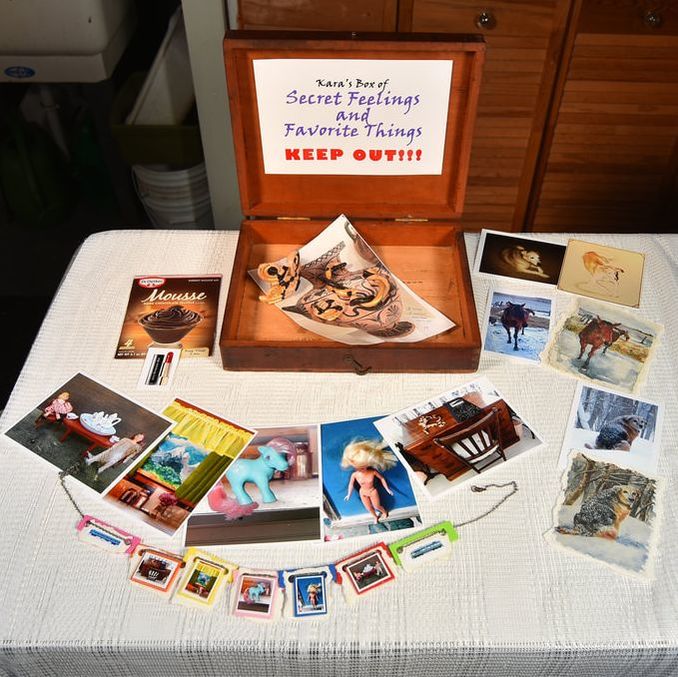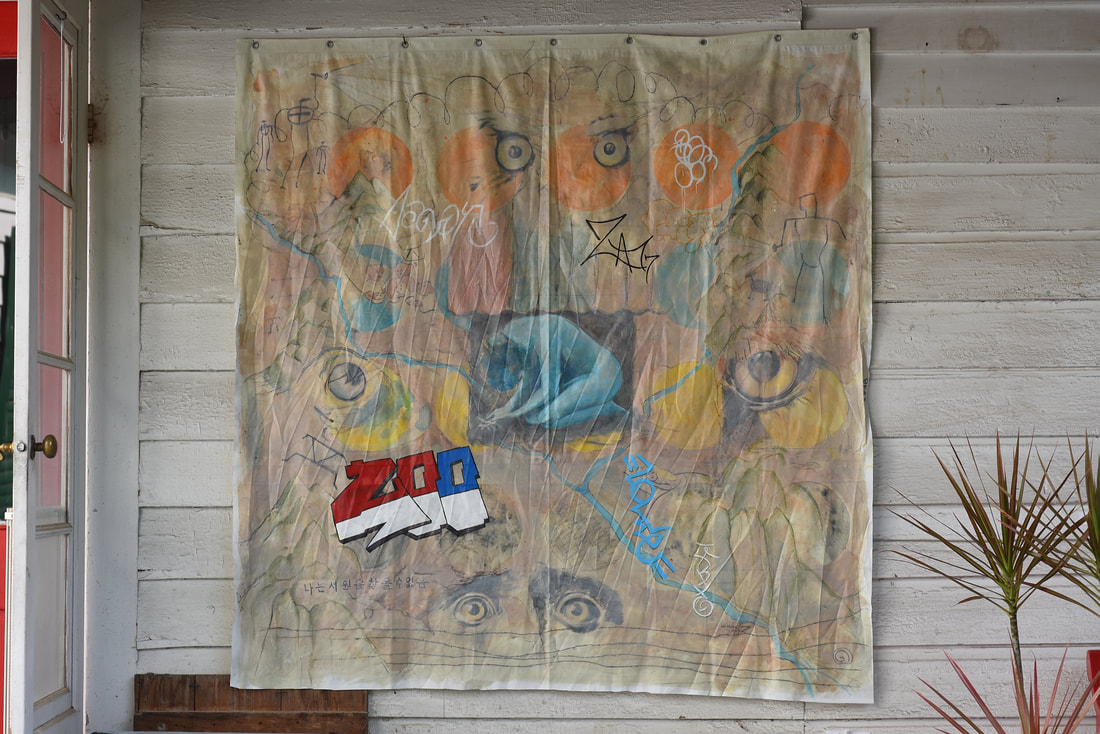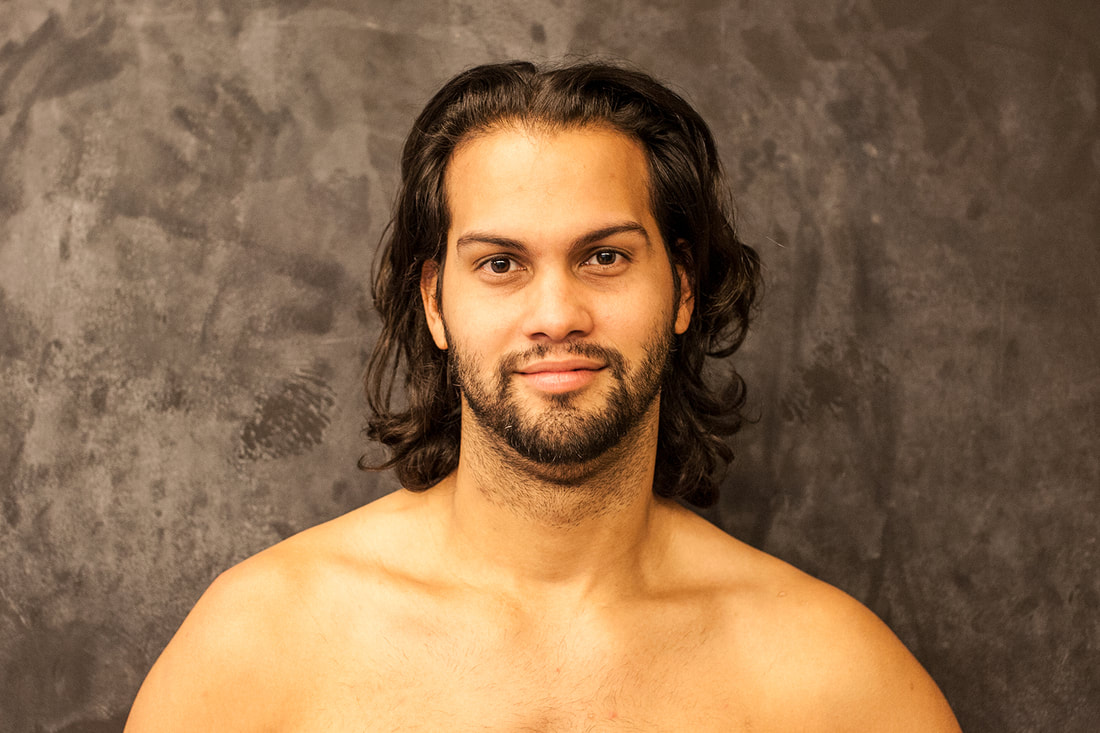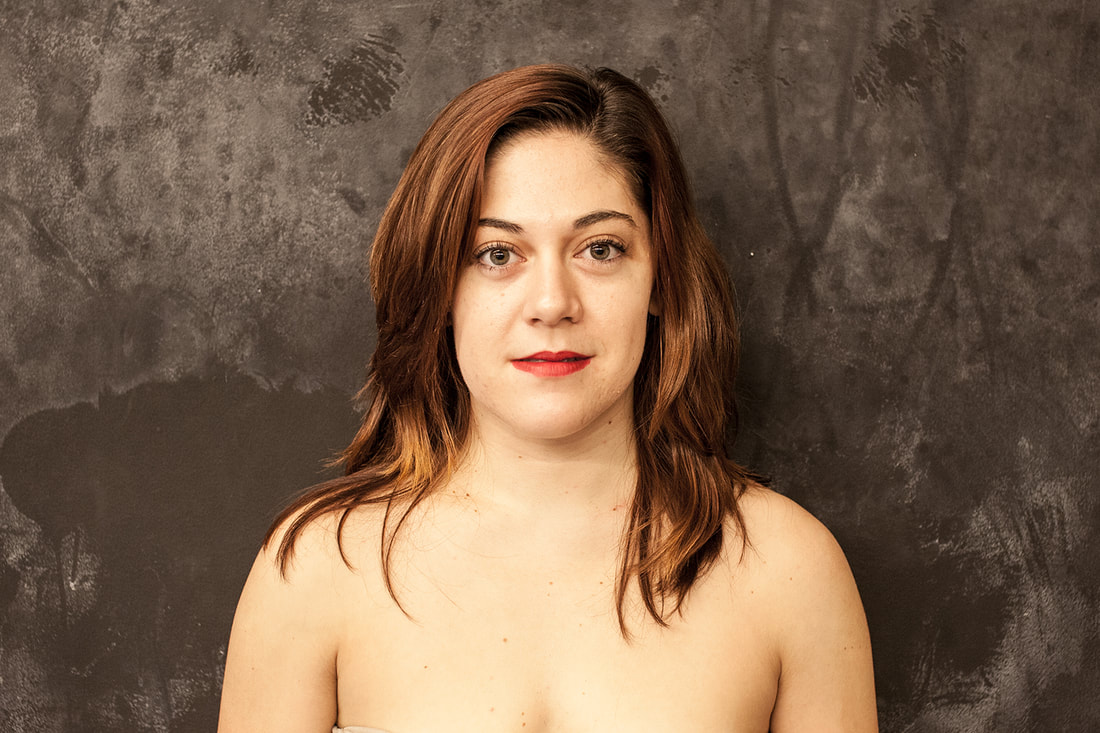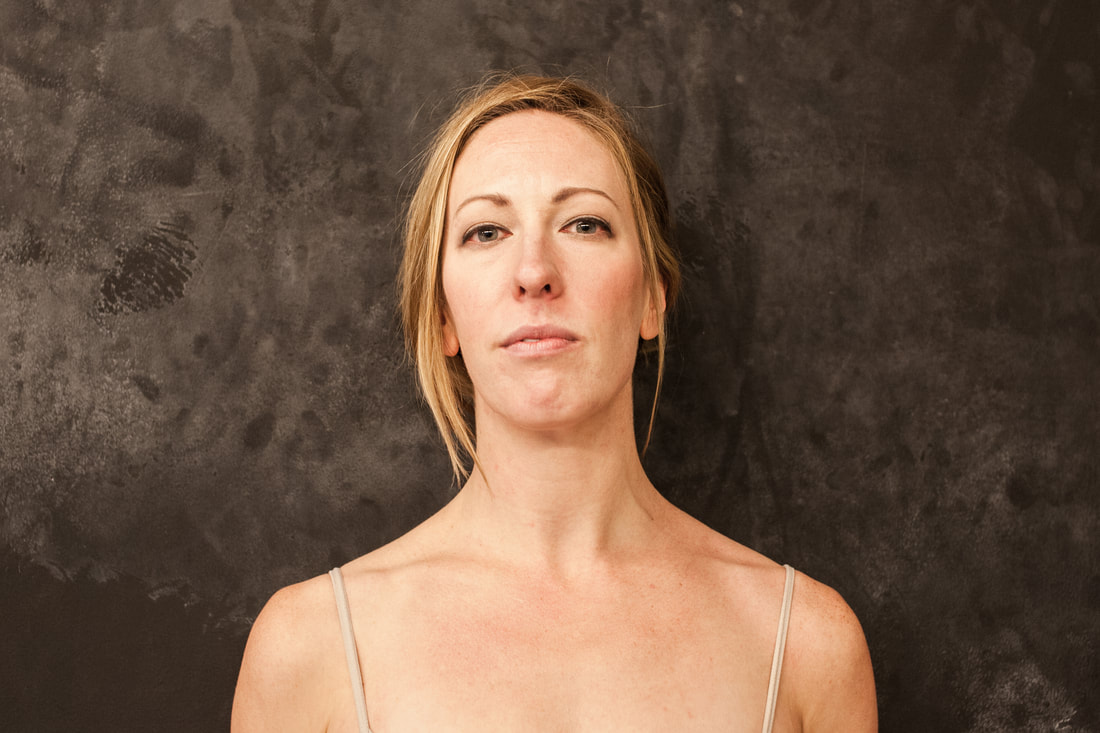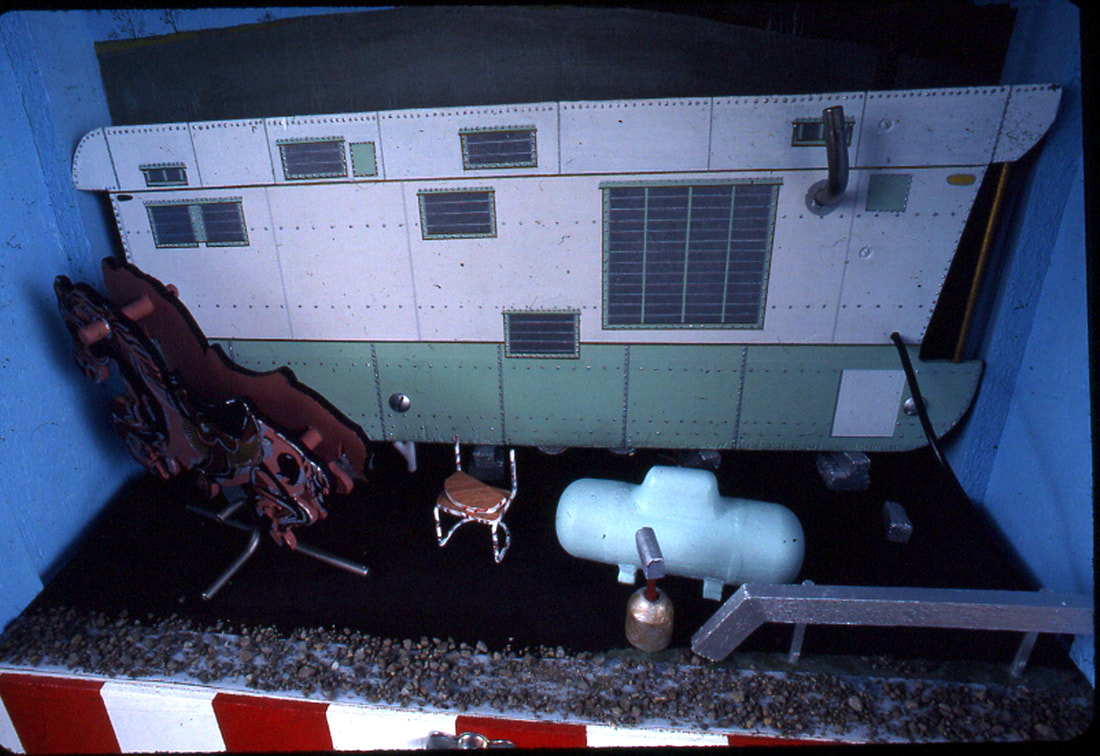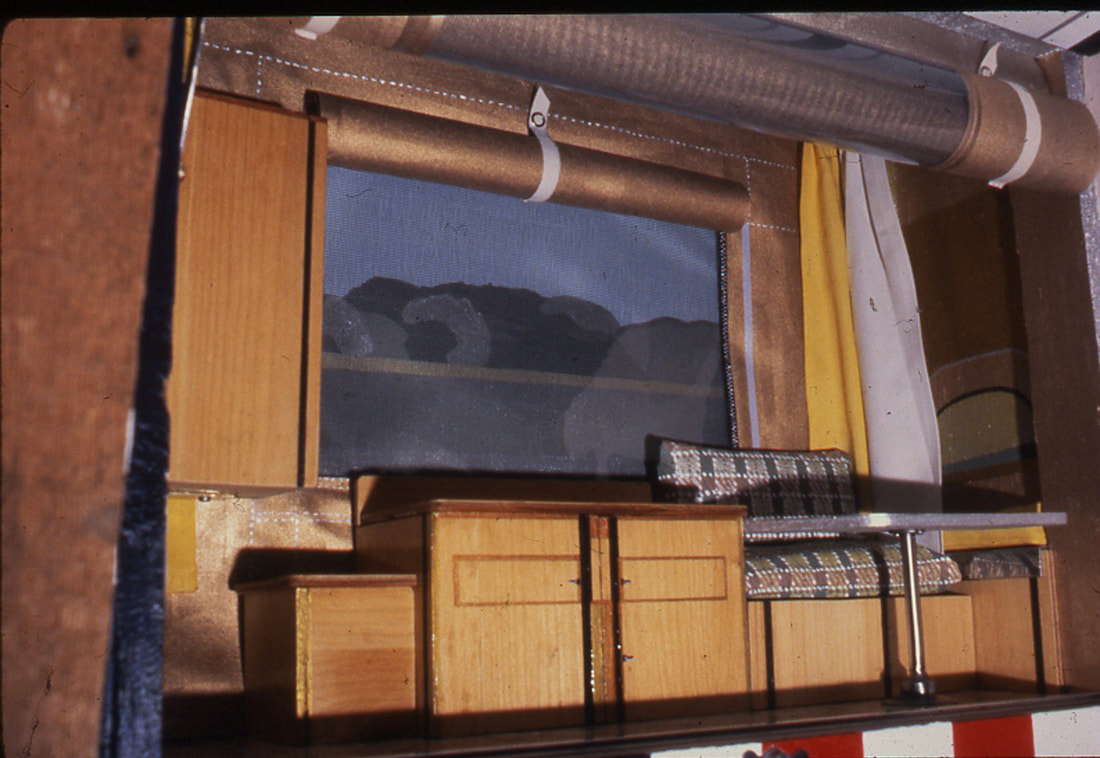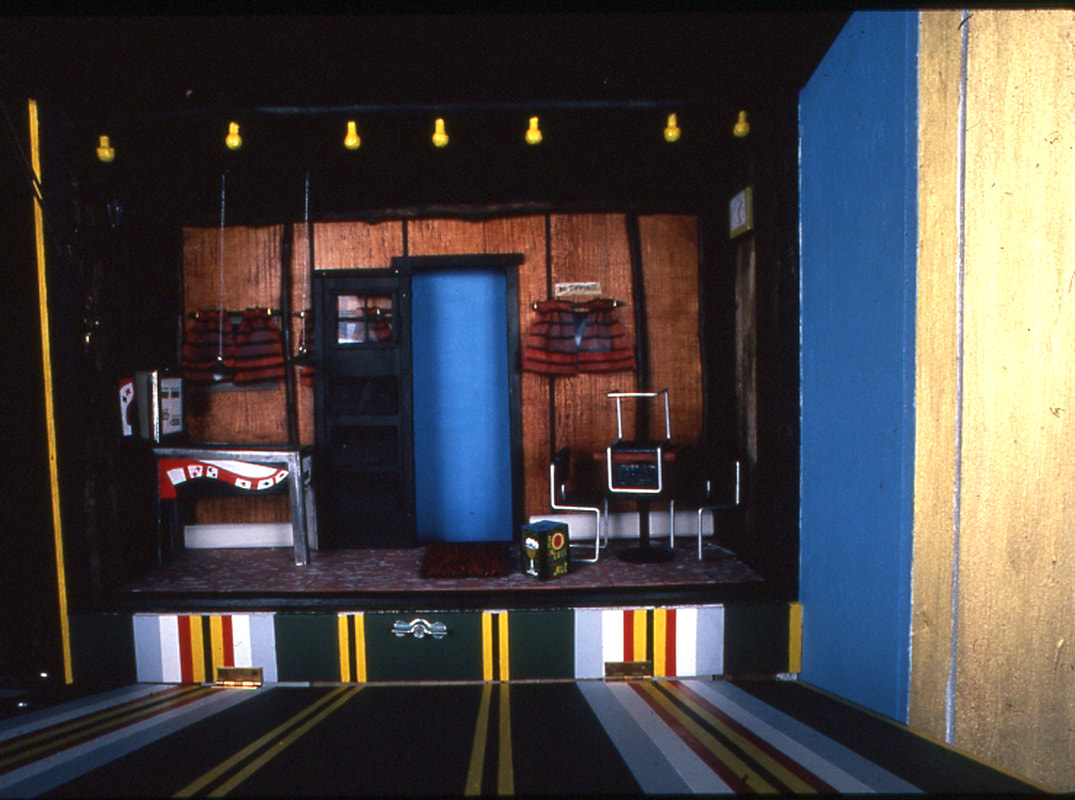|
Skipper Madison Roberts had been trapped inside her sister’s camper since 1977. Emerging from the time warp required a period of reorientation to a world that had aged forty years in the flick of an eyelash. How had she gotten here? Barbie’s younger sister, Skipper made her own friends, Skooter and Ricky, because Barbie spent more time with Ken and grew more interested in making babies than babysitting her tween sister. That June in 1977 they had gone to the beach on Lake Michigan near Manitowoc and spent a weekend playing inside Barbie’s camper. Skipper, Skooter, Ricky, Ken and Barbie and their beachcomber recreational vehicle belonged to two sisters, Jane and Julie. As the elder sister, Jane had acquired her Barbie dolls new and Julie got her hand-me-down dolls when Jane was ready. When Jane and Julie went with their parents on a summer vacation to Wisconsin, they played in the sand dunes along the western shores of Lake Michigan. They brought their Barbie dolls and camper and dressed them in summer fun outfits and seated them around the formica table. Jane pulled back the draperies. Julie rolled up the window screens and let the summer breeze come through the mosquito netting. Jane laid Skipper on the sofa without putting an outfit on her. The midcentury modern design of blond wood cabinets and lineoleum floors gleamed in the bright sunshine. Julie and Jane went swimming, and for ice cream, rode their bikes with Skooter and Ricky in Julie’s pockets and Ken and Barbie in Jane’s. They forgot all about the camper and Skipper on the beach. Without realizing it, they left Michigan without picking up all their toys on the beach. Forty years later, Skipper woke up. Back in her body made of flesh and bones instead of molded plastic. She didn’t have any clothes on but her eyebrows were perfectly applied. Auburn hair hung to her shoulders. Perfectly shaped red lips. Bendable knees. Proportions of bust-waist-hips that weren’t like those of a fake Barbie doll. She was a real woman. In a trailer park filled with other midcentury pre-manufactured ticky tacky homes in a row. by Jill Swenson by Alanna Newkirk
The Secret Life of Trains Janelle didn’t want to look down. As she half-smiled weakly at the faces peering up at her in shocked silence, she wondered why she always had her face on. It seemed completely unlikely under the circumstances that she would be fully made up, but she always was: brows filled in, undereye shadows scrupulously concealed, lips her usual shade of “Juicy Revolution Red.” The moment passed and the silence gave way to whispers and giggles. Soon it would be outright laughter among her classmates, resounding off the chalkboard that framed her torso. Another naked-in-front-of-the-classroom dream, Janelle thought. How original. She glanced down at the desk; this time, the report was on the recent discovery of ancient Etruscan pottery shards and their implications for modern reconstructions of the civilization’s demise. She sighed and gripped the report to her chest as she dashed for the door, assaulted by the tide of derisive hoots. ::::::::::::::::: Waking up was a relief when it happened. Janelle dimly remembered the naked dream, which had gone on to involve a horse and a dog and also, confusingly, chocolate mousse and someone named Kara. That name felt familiar. She heard it often, lately, echoing in her head. Was it outside her head, though? Something felt slippery about the name. But there was no one here called Kara. No one named Kara was on this train. There were plenty of things to wonder about the train: where it was going, who had chosen the terrible yellow color of the curtains, why the tables in the dining car were still Formica as if it hadn’t been updated since the 1970s. Janelle was sure that it wasn’t the 1970s, but there weren’t any calendars in the train to check. Perhaps the conductor had a calendar, but he was also a mystery. Janelle corrected herself: perhaps he or she had a calendar. She wondered the most about the scenery outside the windows: it faded a little with the days, and if you moved to a new car and a new window, it was different. But if you looked too closely out a window, you could see the tree-ish mountains not-moving very stolidly. They were not-moving all day, every day. They looked as if they were made of brushstrokes, or dots of ink from a stamp, but that wasn’t right. Janelle knew that scenery moved by, when one stood at the window of the train. And that landscape wasn’t made of paint. It couldn’t be right that they were not-moving. She unsnapped the clip holding the blind up and let it roll to the base of the window so the scenery could move or not-move on its own, out of sight. The main thing Janelle could do was to walk up or down the train and seek out the others. They weren’t always there, but she could often find Cleo or Pony or Eric hanging out in another car, passing the time. Sometimes they were having tea, or at least, sometimes they had a tea set. She got ready to start the day of walking. Walking and seeing the others was, so far, a lot more interesting than wondering about the train. They didn’t know any more than she did, but at least they moved more than the scenery outside the windows. And anyway, if she made it far enough down the train, she had other window scenes to look at, even if they were not-moving. No one else seemed worried about the scenery, but Janelle couldn’t quite forget about it. ::::::::::::::: It is strange to find yourself in a location other than the place where you fell asleep. But Janelle woke up in a different car, slumped over one of those Formica dining tables. She shook herself slightly, wondering if she’d had the naked dream again. What would a psychologist say?, she wondered. Always naked in front of everyone, and that girl named Kara again. Maybe I have a problem. There wasn’t a psychologist on the train. Janelle wasn’t sure why she knew about psychologists, but like the tea set and the dim sense of how scenery should behave, the knowledge seemed to have been a part of her forever. Yesterday, the others hadn’t been available. It was hard to say where they went when they weren’t in the other cars. Janelle wondered if sometimes, she wasn’t in any of the cars either. This was one of her least favorite things to wonder about; it made her mouth dry and interfered with her breathing. Wherever “there” was, outside the train, it seemed like a long way off. And how would she get there? Pony might know, but Pony was the hardest to talk to. Janelle wasn’t sure she was ready to wake up, after all. She settled her head back on the Formica; even the naked dream, which probably meant she was disturbed, was better than wondering what was outside the train or who was running it. She drifted quickly into the twilight of her sleep, where she realized once again: The whole class is staring at me. Why would they be staring? The giggles started to drift across the classroom. Not again. She tipped her head slowly to check. No shirt. She sighed. ::::::::::::::::: “Kara! It’s dessert! I’m not calling you again!” She fumbled with the doll’s clothes, trying to pull them off quickly so she could pull the pretty cherry-patterned dress on before she had to go downstairs. “Kara! NOW! I’m going to give your mousse to your sister!” “I’m comiiiiiiiiiiing!” she yelled back. She gave up on dressing the doll, propping her instead against the little slate chalkboard on her floor. “Sorry, Janelle,” Kara whispered. “I’ll be back soon. I’ll get you dressed up so you can look nice.” She scampered towards the door, glancing back at the toy train where her My Little Pony was standing on a tiny built-in Formica table while another doll was having a tea party with a half-cat, half-woman action figure she called Cleo. Kara smiled and shut the bedroom door behind her. by Tyler K. Cassidy-Heacock multimedia piece including necklace that was given to Tyler during the event in June
by Jennifer Green Fais Zoo I feel so small. Like a monkey in a cage. Like some extinct creature in a museum diorama. A passenger pigeon, a dodo, maybe a little sea mink cowering in a corner next to an extinct fern. I could make friends with that chubby pupfish over there. Or eat him. But I’m not. I’m human. At least the last time I looked. A human woman. This brief clearing in the woods was a discovery. A tin shelter. Whom it belongs to I’ve no idea, there is no lock. When the bright light comes I quickly evacuate, to hide myself, usually in the river, underwater. I can swim a long way on one breath. What I’ll do come winter I have no idea. I am braiding a rope from found remnants. When it is long enough, I plan to attach it high in a tree notch so that I might pull myself up in the foliage, hauling my rope up after me. Yes, in winter a thick conifer. Perhaps. When they leave again there is often something edible left behind. I don’t know if this is their carelessness, or if it is meant for me. It is difficult to surmise motives. When, if, I consume this—well, of course I do—I leave any remnant clawed, any bit of tin crushed, as if it was one of my near neighbors who devoured it. Scattered by wolves, bears, foxes, raccoons; those coyote, my vigilant friends. As I have no clothing I appreciate the offerings of these familiars. A scrap of rabbit fur, the discovered remains of a ravaged deer. If they had meant me no harm, you would think they would not have left me naked. Soon my hair will grow longer, long enough to afford me warmth, protection. Often now, I have moved on. Searching for the way free. I follow the river, or deer paths that might lead to the edge, but the woodland only thickens. The bright light comes no matter where, both here and there. Sometimes I just circle back to the tin house. Perhaps they are still searching for me. I vow to not be found. by Karen Alpha painting by Edd Tokarz Harnas
Twilight at Dawn 1. Late Night Letter Jay, you know I never watched the news —Afghanistan, Iraq, I couldn’t point either out-- so when you went, it’s like you were lost. Or no, it was like I couldn’t follow. No, I was lost. I can’t write it all in one place so I spread it out and know it less. Do you think your mother thinks I’m dead? Even if she’d give them to me, any stars of yours would be dark-- dark stars are useless. I want to shine. 2. At the Laundry Heavy load of sweatshirts and stuff rolls up; eventually though, they tumble, the basket turning, working and working just to dry the clothes. And I watch the whole pointless cycle start again. Then it stops, jeans soaked. No more quarters. I never have enough. They gave us grades all through school-- math, social studies, even gym. I mean, there’s got to be a way to know, now, as adults, if you’re doing it right. Even how straight our letters were got grades. 3. Another Letter We had extra-curricular priorities, you and I; Elle’s almost twelve, proof of that. We had to hide from your mother back then; even now, she can’t seem to find me. Reality star, Elle says. Or some days, Engineer for NASA. So I’m taking classes on loans I might not ever be able to pay back. Now I get what a thesis is, and I’m learning elementary algebra. And what I’m made of. We do homework in sync, mother and daughter, each in silence, becoming what we can’t yet know. 4. Cleaning Up and Homing In The laundry’s in its basket still, days later; heaped up junk mail layers the kitchen table. Elle’s shoes make walking the hall a hazard. Yelling does no good. I begin with the clothes then work my way back to the table. Then sit. Objects finding their place eases me, even if order’s hard to achieve and doesn’t last long. Kitchen ready, I put on the pasta water. Home, the fact and feeling of it, is a softening I can make for Elle. It has to happen every day. Memories, mom used to say, won’t cook the sauce. 5. Starting Homework in the Gloaming I tower my textbooks against the window. Sunset’s long over, fireball gone, but above the black bulk of the hills yellow highlights the important edge. Gloaming, my new vocab, refers to being in-between. One word embodies many meanings. Twilight, on one hand, is darkness shouldering into day; on the other, light blooms on the stem of night-- betweenness means living the transition. You can’t trust words. So I start with math. Equations. Proofs. Let’s see what x is this time. 6. Last Late Night Letter In the small quite hours, I wake, and, magically, feel cozy in my trailer, in my life. Elle snores, but gently, the sound a comfort. Let me go, Jay. Let me live, and I’ll, I’ll, I will let you die. It’s been eleven years, eleven years, six months. Through my window a star I think is Venus gleams like a jewel. Night-time is becoming my friend again. Daylight’s no longer drudgery. I whisper Move on, move on, only partly to you. Embraced by star-shine, I snuggle in to sleep. by Edward Dougherty "Desperation" by Mary Weatherbee
|
66 OURS - Collaborative Writing ProjectStarting with Phase 1, writers had 66 days to base their writing on 1 anonymous person & 1 vignette, dutifully and judiciously assigned to each writer by Amelia. Photos given to the writersEach writer was given a combination of 1 person + 1 vignette from the following:
Person 1
Person 2
Person 3
Vignette 1
Vignette 2
Vignette 3
Categories
All
|
